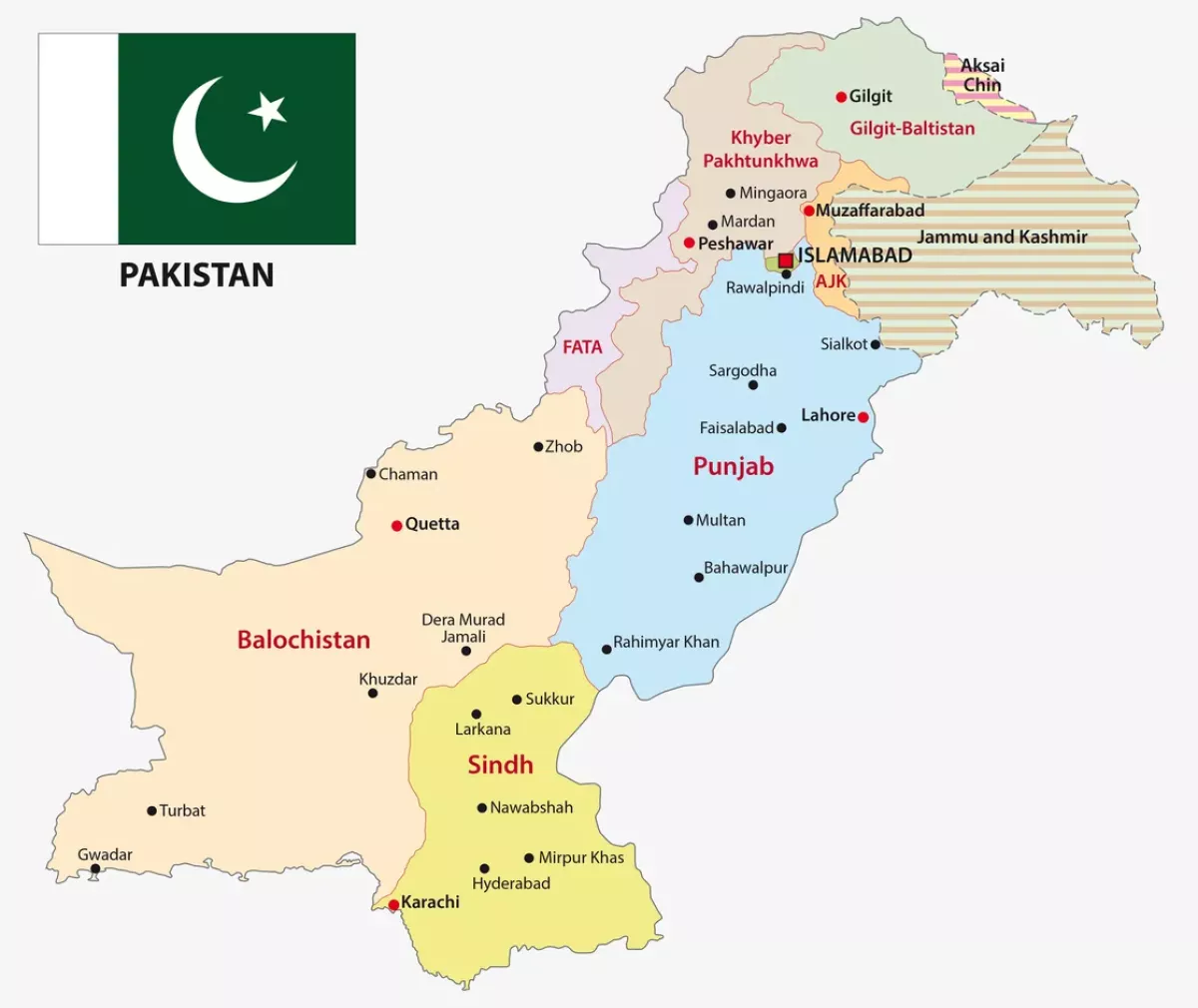Why Pakistan remains so vulnerable to climate disasters
More than 170 people — including 63 children — have died in Pakistan over the past three weeks due to climate-related disasters, as the country braces for the full onset of the monsoon season. With a population exceeding 250 million, Pakistan is among the world's most vulnerable nations to climate change, having faced repeated environmental catastrophes. The most severe in recent memory was the 2022 flooding, which killed nearly 1,700 people and displaced more than 30 million across the country.
In its latest situation update, released on July 16, Pakistan’s National Disaster Management Authority (NDMA) reported that about two-thirds of recent fatalities were the result of house collapses and flash floods. Drownings accounted for just over 10% of the deaths.
According to an article by Al Jazeera that explores these hardships Pakistan faces, the provinces of Punjab and Khyber Pakhtunkhwa were hit the hardest, recording 49 and 38 deaths respectively since June 24.
In Punjab’s capital, Lahore, heavy and scattered rainfall last week led to power outages and severe waterlogging, especially in low-lying areas with narrow streets. Other parts of central and southern Punjab experienced similar conditions, and Pakistan’s meteorological department has forecast more rain in the coming days.
An NDMA official told the publication that the agency has already issued early warnings to provincial governments and residents, and has placed relief supplies at vulnerable sites. “We’re monitoring the evolving situation using satellite systems, meteorological models, and real-time ground reports,” the official said, while cautioning that flash floods and urban flooding remain major threats.
South Asia, including Pakistan, typically receives 70–80% of its annual rainfall during the monsoon season, which stretches from late June to September. This year, however, the damage is being worsened by extreme heat in the northern region of Gilgit-Baltistan, known as the world's “third pole” because of its high concentration of glaciers.

Gilgit-Baltistan is home to thousands of glaciers and draws climbers from all over the world. According to a 2023 joint study by Pakistan’s Ministry of Climate Change and Italy’s EvK2CNR research institute, the region contains more than 13,000 glaciers. But temperatures there have surged above 48°C, despite its elevation of over 1,200 metres, accelerating glacial melt and raising the threat of flooding, damage to infrastructure, and risks to food, water, and energy security.
Zakir Hussein, head of Gilgit-Baltistan’s disaster management authority, warned that the region is at immediate risk of Glacial Lake Outburst Floods (GLOFs) — sudden and violent floods triggered by glacial lake breaches, which are increasingly common due to rising temperatures.
Robust response to disasters lacks major funding
Pakistan has long sounded the alarms by declaring that it lacks adequate international support in managing the climate crisis. UN Secretary-General Antonio Guterres emphasized in 2023 that countries like Pakistan — which contributes just 0.5% to global greenhouse emissions — face an unjust burden, as its people are 15 times more likely to die from climate disasters. The UN Development Programme estimates climate change costs Pakistan about $38 billion annually, threatening its fragile economy.
After the 2022 floods, Pakistan co-hosted a global donor conference with the UN in January 2023, where $10 billion was pledged. However, most of the funds were loans, and by 2024, Pakistan announced that it had only received $2.8 billion of the promised aid. The article cites a statement made earlier this year by the former head of Pakistan’s central bank, who projected the country would need $40–50 billion annually until 2050 to adequately respond to its climate risks.
Commenting on Pakistan’s plight, Dr Edward Maibach, Distinguished Professor and Director of the Center for Climate Change Communication at George Mason University, predicts that the human carnage will continue to worsen unless humanity rises to the challenge of slowing and stopping climate change and protecting people and communities from unavoidable climate impacts. Cited by the Pakistani Dawn publication, he suggested that the most effective way to slow and stop climate change is to “accelerate the transition away from fossil fuels and to clean renewable energy. The most effective way to protect people and communities from the unavoidable impacts of climate change is to take actions that increase their climate resilience.”
By Nazrin Sadigova








